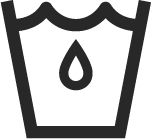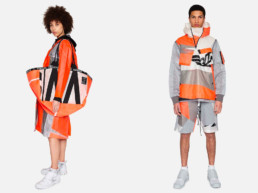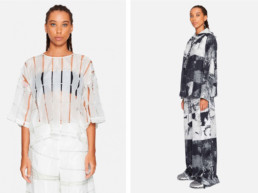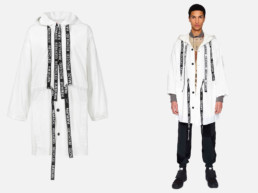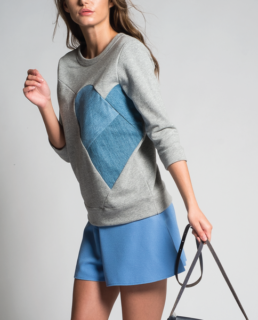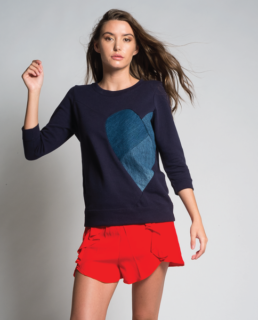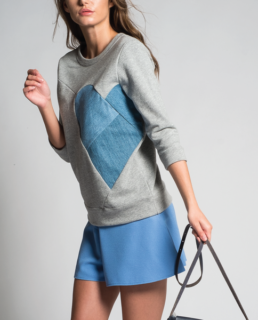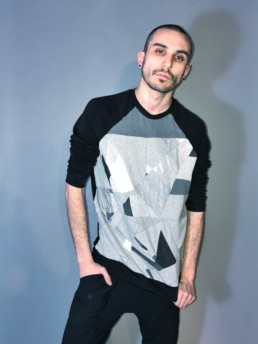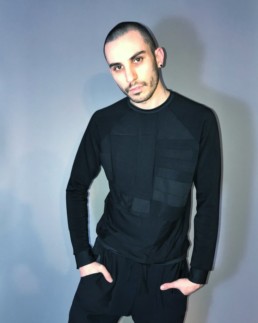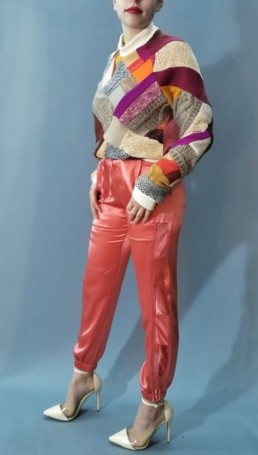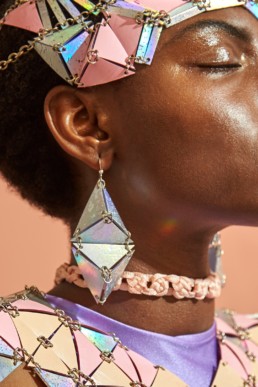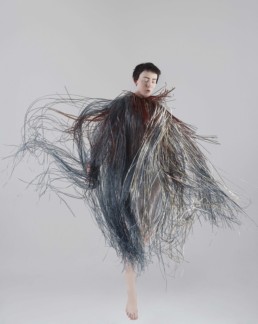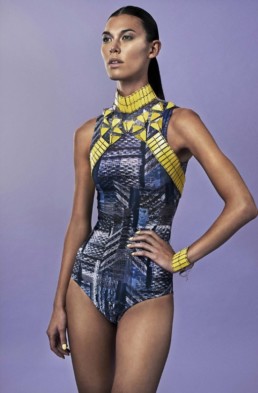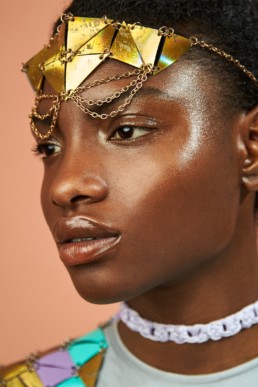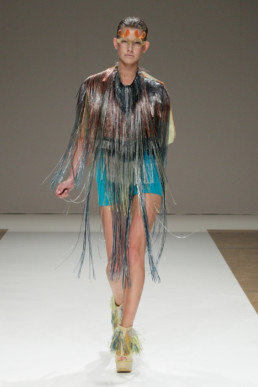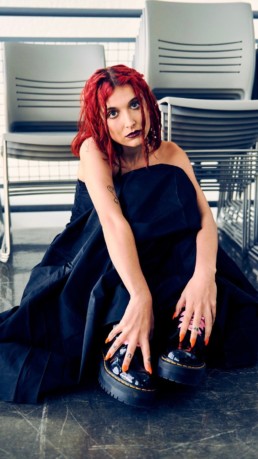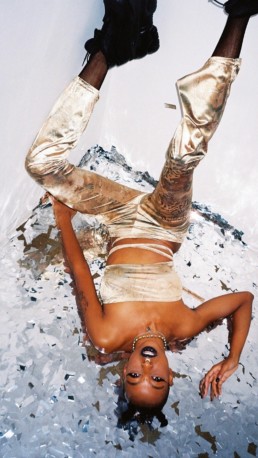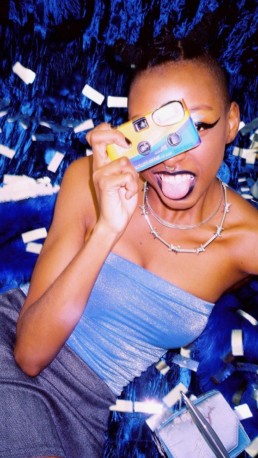April 5, 2019
Reuse and Remake: 10 Upcycle Fashion Brands doing their part in Waste Reduction.
these aren't your grannies' craft projects. Check out these brands elevating the upcycle game. Environment and closet approved.
CHRISTOPHER RAEBURN – LONDON, UK
Christopher Ræburn has established his eponymous brand with sustainable and intelligent fashion design for a global audience. The REMADE ethos in particular has pioneered the reworking of surplus fabrics and garments to create distinctive and functional pieces.
The REMADE Studio in Hackney, London was previously home to the Burberry Textile factory and is increasingly used as a platform to host a wide variety of workshops from open studio days for the local community to more advanced workshops where attendees are invited to design and customise their own tote bags using off-cuts from the atelier.
Preloved is a fantastic clothing concept. Taking vintage clothing , completely deconstruct it, turn it into fabric, and use that fabric to create new collections each season.
Their collection is carried worldwide, in stores like Anthropologie, The Hudson’s Bay Company, Beams Japan, Roots, and over 400 independent boutiques. Their main collection is a contemporary women’s wear line, but also make clothing for men and children, as well as a home decor line. In one season they will use over 100’000 vintage sweater to create their collections, that other wise would have ended up in landfill.
every Zero Waste Daniel product is made using a closed loop production system and technique called reroll. He is also a co-founder of the Package Free Shop in Brooklyn.
Shop in person:
ZERO WASTE DANIEL
369 hooper street
brooklyn ny 11211
From the outset Jane has been a pioneer in sustainable fashion and has spoken at various high profile industry events, including the ‘High Fashion Low Countries’ seminar in Antwerp, Belgium.
Their mission is to resurrect vintage deadstock apparel and accessories from decades past and bring them to you with love and minimal packaging. Inspired by 80’s, 90’s +, American Deadstock is a cool throwback to the 90’s rave club kid culture. Full of fun surprises and larger than life personalities
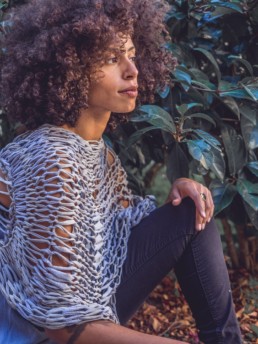
At tonlé, we see fashion differently – from the way it’s made to the way it’s worn. We see it as encouraging the unique in everyone who touches our clothing, from maker to wearer. Our process starts with scrap waste sourced from mass clothing manufacturers. Using every last thread, we create handmade clothing and accessories signed by their Cambodian makers. Our family of employees is made up of individuals with spirit, drive and dreams. Together, we’ve built a supportive environment where everyone expresses themselves freely, learns new skills, and gains confidence in what they do. We believe style is more than what you wear – it’s what you choose to be a part of. When you buy tonlé, you’re buying one-of-a-kind clothes that carry meaning across cultures and continents. – from bio

STEVEN HIRSCH – GOWANUS WATER
Peer into the Gowanus Canal in New York City, and you’ll see what is widely recognized as one of the most polluted bodies of water in the United States. The contamination is so severe that the canal has been designated a Superfund site.
Stunning with toxic beauty, the abstract and psychedelic work on view was captured by Steven Hirsch’s lens at the Gowanus Canal in Brooklyn, one of America’s most polluted waterways. Revealing otherworldly waterscapes in the slime and detritus atop the tainted water, Hirsch’s painterly images swirl in a frenzy of elusive shapes and bright and explosive colors.
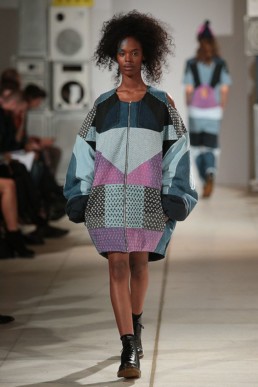
Always feeling like an outsider, I sub-consciously started creating my own denim army, my gang.
A signature style – upcycled denim patchwork with hand embroidery – was born during a MA Fashion course at Kingston University London, in 2013.
I am interested in the concept of identity,
blending in or standing out?
I also think a lot about the integrity of a garment. I want every piece that I make to feel special, and I would love it if the owner of the garment felt that connection.
The design ethos behind all my work embraces the thought of wearing, loving, caring and mending – turning old into new.
Katy Bell & John Maskell | The Founders
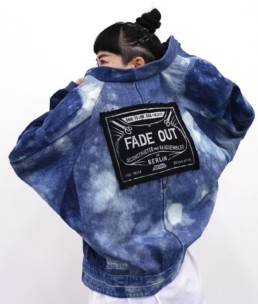
FADE OUT is a unisex line of exclusive clothing and accessories made from deconstructed vintage using handicraft methods, where the patina of used material recombined in a fresh and different way creates new unrepeatable alchemies. FADE OUT embodies a dump-to-hanger ethos and celebrates responsible recycling of materials and innovative designs.
We do not believe in the timelines of the fashion system but in timeless creativity and in the originality of every single idea and item. We therefore create permanent collections to which new items are added every season. We create comfortable, unisex garments, which due to the use of recycled material become hand-crafted one- offs, repeatable but always different.
All FADE OUT items adapt to various occasions and to different personalities due to their simple yet well studied oversized fit. The originality of our idea and our handicraft approach to both the creative process and the production itself outdare the overproduction, conformism and exploitation of present day’s fashion system. FADE OUT’s belief in sustainability of both material and actual production leads us to a direct relationship to our costumers, which allows custom- tailoring and made-to- measure garments.
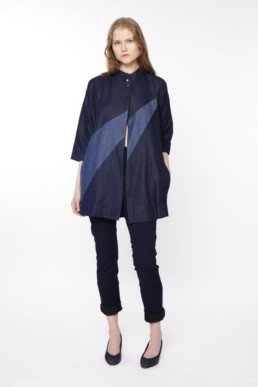
Using existing fabric is one of the most environmentally friendly ways to produce clothes. The process of designing clothing usually begins with design, but, for Reet Aus, it begins with the materials. She is inspired by the design limitations of upcycling. The colours and textures in leftover fabric are unpredictable. Most of the fabric is small in size, though some bigger pieces do come from roll-ends. But the results are stillclean and the designs are very wearable. Each season, She make a few new styles that can be mixed and matched with the collection’s existing designs.
UPMADE CERTIFICATION
Reet Aus is the lead researcher and designer for UPMADE®. This enables brands and manufacturers to apply their industrial upcycling method and obtain certification. A circular economy produces zero waste and pollution, by design. It is an ideal that the UPMADE® method supports in a real and practical way. Traditional clothing manufacturing creates an average of 18% textile leftovers. Their method closes the loop by applying upcycling on an industrial scale and reducing the amount of textile leftovers. Thanks to this, that 18% can now be turned from cost into value. – from bio
